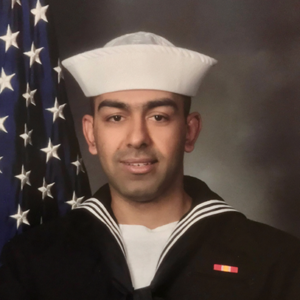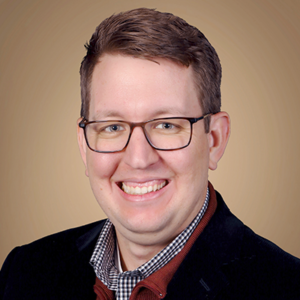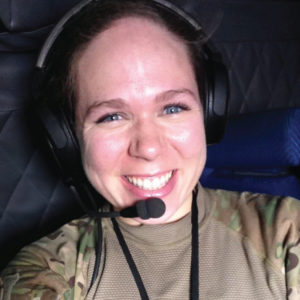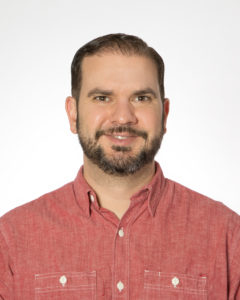Tillman Scholars in the News
 Safi was featured in an article by CNN after his release was secured from the Taliban. Rafi was in Kabul doing humanitarian work in Afghanistan prior to being taken into custody in December 2021.
Safi was featured in an article by CNN after his release was secured from the Taliban. Rafi was in Kabul doing humanitarian work in Afghanistan prior to being taken into custody in December 2021.Safiullah Rauf was born in 1994 in an Afghan refugee camp in Pakistan. After immigrating to the United States as a teenager and graduating high school in Omaha, Nebraska, he deployed to Afghanistan for four years as a linguist and cultural advisor embedded with Special Operations, supporting both Operation Enduring Freedom and Operation Freedom’s Sentinel. In Afghanistan, Safi performed translation and interpretation on a wide range of media, advised U.S. military personnel and coordinated with Afghan security forces, coalition partners and U.S. federal government departments—including U.S. Embassy Kabul—to mitigate high-profile threats.
In 2016, Safi moved to Virginia to attend college and enlist in the U.S. Navy Reserves as a corpsman. Safi is currently assigned to the Expeditionary Medical Facility Bethesda’s Naval Reserve unit, where he performs duties as a medical assistant to physicians and supports in the medical readiness of 80 patients per month for more than 2,800 reservists. In April 2020, Safi mobilized to New York City to staff the military’s makeshift hospital at the Javits Center.
 Bryan will be presenting his recent paper, Connections Between System of System Sustainability and Resilience in an Electric Motor Manufacturing Supply Chain, at the 29th CIRP LCE Conference in Belgium.
Bryan will be presenting his recent paper, Connections Between System of System Sustainability and Resilience in an Electric Motor Manufacturing Supply Chain, at the 29th CIRP LCE Conference in Belgium.After growing up watching the midshipman playing football, Bryan dreamed of attending the Naval Academy. While at the Naval Academy, he majored in systems engineering and competed in the Micro League of the International RoboCup. After graduating in 2009, Bryan joined the nuclear Navy, serving onboard the U.S.S Louisville and in the naval prototype training unit over 8 years. While serving, Bryan developed a deep appreciation of the role that mentorship plays in the lives and success of teammates. He was also inspired by witnessing the impact that complex systems (fleets, weather, port infrastructure) have on individuals and the impact individuals have on the performance of complex systems.
Following his transition from active duty, Bryan began pursuing a Ph.D. in mechanical engineering at the Georgia Institute of Technology. Bryan’s work began at the Computation and Advancement of Sustainable Systems Lab where his master’s thesis developed a new method for distributed system demand estimation. Bryan was named a National Science Foundation Graduate Research Fellow, and this allowed him to focus his research on examining the relationship between people and systems that he observed in the Navy. He focuses on methods of improving the resilience of systems-of-systems in the Sustainable Design and Manufacturing lab. His long-term goal is to establish a career as a research professor where he can mentor veterans returning to school and where his methods of systems-of-system design can help make the world a more resilient and sustainable place.
Gretchen Klingler, 2017 Tillman Scholar
 Gretchen wrote a piece for the US Global Leadership Coalition—Female Engagement Teams in Iraq/Afghanistan—explaining the experience of many of our female soldiers on.
Gretchen wrote a piece for the US Global Leadership Coalition—Female Engagement Teams in Iraq/Afghanistan—explaining the experience of many of our female soldiers on.
Gretchen entered the military in 2009, searching for a new direction in life. She soon found that direction in joining the Air Force as an airborne linguist, finding herself in Iraq as a stand-in translator five years later. Here she recounts her most memorable moment realizing the importance of communicating the Iraqi experience to Americans, leading her to add Arabic to her passion for cultural anthropology at The Ohio State University.
Following her time at Ohio State, with the narrowing of national resources and funding allocated to welcoming immigrants to the United States, especially between 2017 through early 2021, Gretchen turned to a career in a passion equally important to her — the veteran community. She is actively involved in the Veterans of Foreign Wars and the American Legion, and is a member of AMVETS, Disabled American Veterans and Associates of Vietnam Veterans of America.
Gretchen continues to strive to provide opportunities for both the stories of veterans and immigrants’ and refugees’ to be shared with and understood by more Americans. She believes that building stronger intercultural understanding in the United States and beyond will help us all embrace the beauty in our collective diversity, whether that be the stories of immigrants who leave their homes, or the experiences of military service being shared with those who desire to support our returning service members.
Ethan Rocke, 2013 Tillman Scholar
 Ethan, senior editor of Coffee or Die Magazine’s culture vertical discussed the magazine and their approach as journalists with Laura Hazard at Nieman Journalism Lab.
Ethan, senior editor of Coffee or Die Magazine’s culture vertical discussed the magazine and their approach as journalists with Laura Hazard at Nieman Journalism Lab.
After serving as an infantryman with the Army’s 101st Airborne Division from 1998 to 2001, he enlisted in the Marine Corps as a combat correspondent. From 2001 to 2011, he served as a writer, photojournalist and editor for newspapers, magazines and the Web. From 2005 to 2008, Ethan served with the III Marine Expeditionary Force, producing, assigning and editing news coverage in Japan, Cambodia, Thailand, Philippines, Indonesia and Pakistan.
Ethan’s career as a “storyteller of Marines” culminated with his final three-year assignment as Public Affairs Chief at the Marine Corps Motion Picture and Television Liaison Office in Los Angeles, where he served as a consultant on dozens of television shows and documentaries and several feature films from 2008 to 2011.
After being honorably discharged from the Marines in October 2011, Ethan completed a B.S. in Photojournalism from Syracuse University and an M.S. in Multimedia Journalism from the University of Oregon. His work has been published in the New York Times online, USA Today, Business Insider, American Legion Magazine, Upworthy and many others. He is a contributing writer for Maxim Magazine and co-author of The Last Punisher: A SEAL Team THREE Sniper’s True Account of the Battle of Ramadi.
Syed Faraz, 2019 Tillman Scholar
 Syed and his classmates at Stanford made the front page of the Seattle Times for their efforts collecting and flying out relief aid to Ukraine.
Syed and his classmates at Stanford made the front page of the Seattle Times for their efforts collecting and flying out relief aid to Ukraine.
Faraz journeyed with his family from autocratic states to America’s freedoms and that journey changed the course of his life. After studying Economics/Politics at the University of Texas – Arlington on a merit scholarship, he resolved to defend those freedoms that changed his family’s life.
As a Navigator in the Air Force, Faraz flew more than 630 combat hours, played a crucial role in the Obama-directed rescue of 40,000 refugees and led a campaign to deliver aid to 1,600 earthquake survivors. The last three years, he’s been deeply engaged in national security innovation as the CTO for the U-2 community. With his team, Faraz raised over $100 million for grassroots innovation initiatives, inspired the Air Force to launch a $64 million innovation fund and helped found the DoD’s first unit-level Federal Lab. To share these lessons, he launched a case study with Harvard Business School exploring change in bureaucracies.
By pursuing a Stanford MBA and Harvard MPP (as a Zuckerman Fellow), Faraz intends to further hone his skills to continue serving his adopted homeland and build bridges between private and public sector innovators. His goal is to transform the DoD to enhance American leadership on the global stage, and ensure that the liberal values America was founded upon continue to flourish across the world. Faraz is the highest-flying aviator of Muslim heritage (besides astronauts), and recently summited Kilimanjaro with his wife for their honeymoon.




